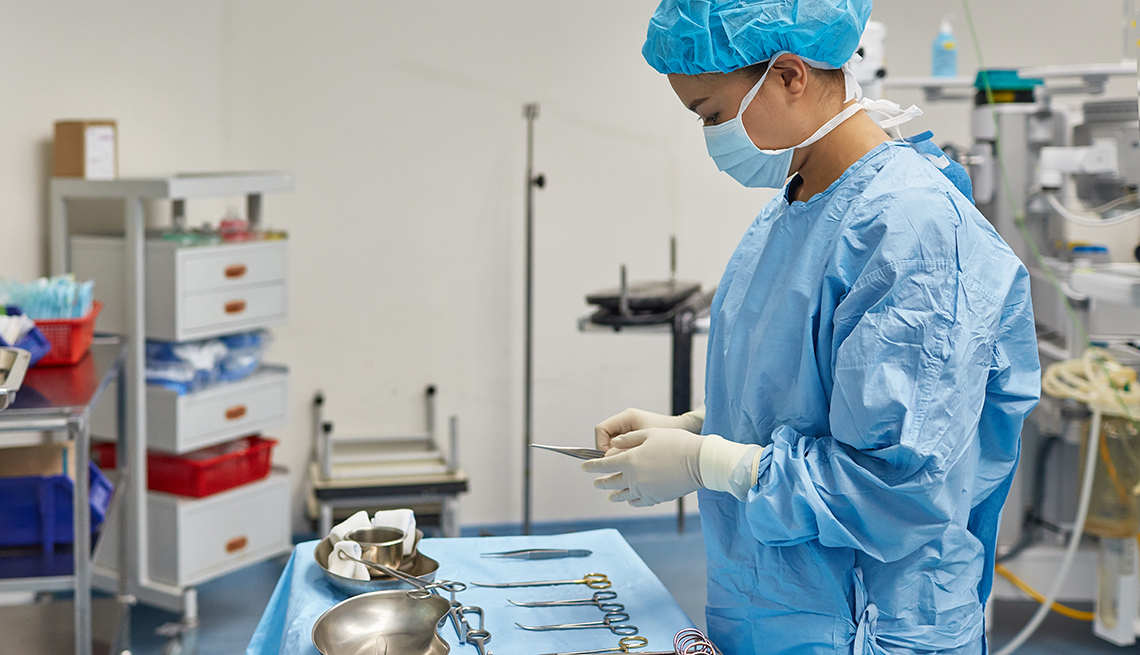
- Select a language for the TTS:
- UK English Female
- UK English Male
- US English Female
- US English Male
- Australian Female
- Australian Male
- Language selected: (auto detect) - EN
Play all audios:
“As states and localities begin to stabilize, it is important to restart care that is currently being postponed,” CMS said in its announcement. The guidance applies to some elective
procedures, care for chronic diseases and some preventive care. CMS also encouraged patients and providers to continue to use telehealth wherever possible, but noted that some medical care
must be provided in person. “We are providing a road map for providers to offer some forms of non-coronavirus-related care to asymptomatic patients,” CMS Administrator Seema Verma said
Monday on a conference call with reporters. “These are recommendations, and every state and local officials will need to assess the situation on the ground to determine the best course
forward,” including that they have the equipment and supplies necessary to handle the non-virus care, she added. CMS says hospitals that have adequate facilities and staff to handle
non-virus care should establish non-COVID care zones to treat patients for conditions not related to COVID-19, the disease caused by the new coronavirus. Guidelines for providing this care
include: * Staff working in the non-COVID-19 zone should be continually screened for the virus. * Staff should wear surgical masks and patients should wear a cloth face covering at all
times. * Patients should be screened for potential symptoms of COVID-19 before entering the non-COVID zone and, when possible, patients should be tested before getting care in that zone. *
Staff who work in the non-COVID zone should not also treat patients with coronavirus symptoms. * Hospitals should continue to monitor the incidence of COVID-19 and stop nonessential
procedures if there is a surge in the virus. TESTING EXPANDED FOR SHUT-INS, NURSING HOMES Medicare beneficiaries whose doctors think they should be tested for COVID-19 but who are not able
to leave their homes will be able to get test kits brought to them, thanks to the relaxation of federal health system restrictions during the pandemic. In addition, Medicare will pay for lab
companies to collect samples in nursing homes, which house many older Americans. "We hope that this will encourage more testing of our nursing home residents, who are among the most
vulnerable,” Verma said on a call with reporters Monday night. “We know that over 150 nursing homes have been affected. By increasing testing, we can isolate those patients that have been
impacted and keep other residents healthy." CMS had earlier announced an expansion of telehealth services, but Verma said those rules are being relaxed even more. Virtual emergency room
visits will now be allowed and doctors will be paid for clinical phone calls with their patients, something designed to eliminate any issues Medicare enrollees might have accessing the
technology used in more traditional telehealth services. CMS is also expanding the use of telehealth for inpatient rehabilitation, hospice care and home health, Verma said. Under the relaxed
regulations, hospitals will, for example, be able to move patients to alternative sites — such as tented operations, dormitories and outpatient centers — to make room in main hospitals for
COVID-19 patients. Rules regarding the ability of hospitals to hire local physicians and other health professionals to meet the surging demand are also being temporarily suspended. PROTECT
YOURSELF AGAINST MEDICARE FRAUD Medicare officials are warning beneficiaries that fraudsters may try to use the coronavirus crisis as an opportunity to try and steal their identity and
commit Medicare fraud. “In some cases they might tell you they'll send you a Coronavirus test, masks, or other items in exchange for your Medicare number or personal information,” the
alert from the Centers for Medicare and Medicaid Services says. “Be wary of unsolicited requests for your Medicare number or other personal information. Only give your Medicare number to
participating Medicare pharmacists, primary and specialty care doctors or people you trust to work with Medicare on your behalf. Remember, Medicare will never call you to ask for or check
your Medicare number.” CMS urges enrollees to treat their Medicare guard like it’s a credit card. Here are some tips the agency has for how to protect against being the victim of Medicare
fraud. * Medicare will never contact you for your Medicare Number or other personal information unless you’ve given them permission in advance. * Medicare will never call you to sell you
anything. * You may get calls from people promising you things if you give them a Medicare Number. Don’t do it. * Medicare will never visit you at your home. * Medicare can’t enroll you
over the phone unless you called first.









